Decorated helicopter pilot Alan Beck can add a further string to his bow – Swiss alpine horn player.
Alphorns at the Taranaki Swiss Club.
Photo: RNZ / Robin Martin
The 73-year-old – who became an Officer of the New Zealand Order of Merit in January – is the driving force behind an emerging group of players in Taranaki.
Recognised for his services to aviation safety and search and rescue, Beck has another lesser know passion – the Taranaki Swiss Club.
The Kiwi’s wife Margaret is Swiss and the keen singer and yodeller has recently been taken under the wing of local alpine horn player Othmar Hebler.
“He was really the only alpine horn player here and about 18 months ago I said to him ‘would you teach me how to play the horn?’ and he graciously said ‘yes, this is how you do it’. I couldn’t even get a squeak out of it.”
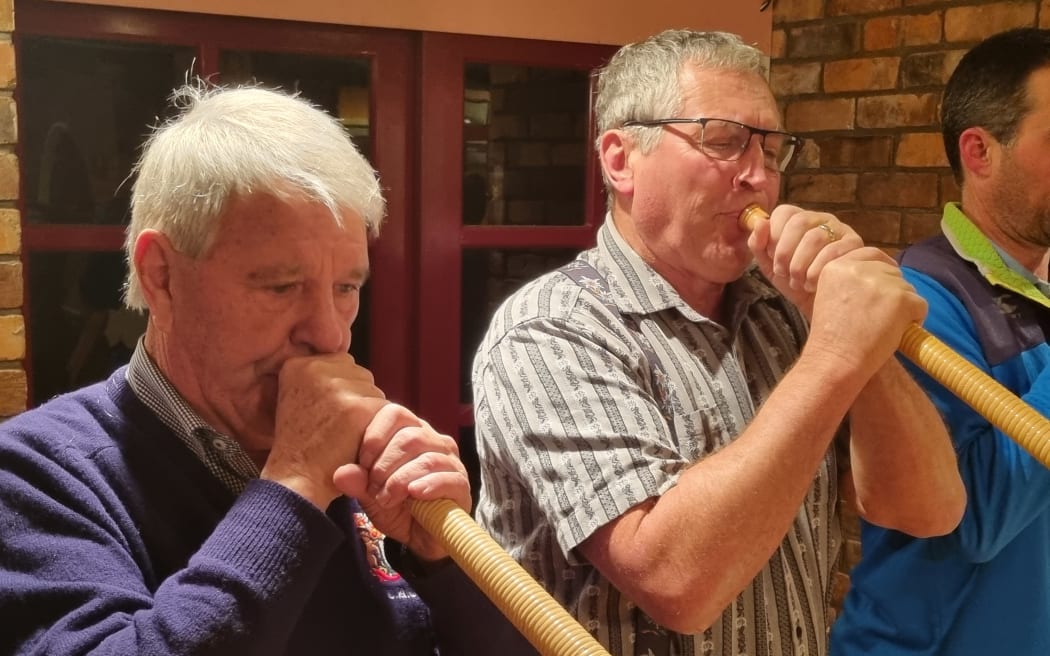
Decorated helicopter pilot Alan Beck (left), whose wife Margaret is Swiss, asked Othmar Hebler (right) to teach him how to play the alphorn.
Photo: RNZ / Robin Martin
Beck said he enjoyed the challenge of playing the instrument which is more than three metres long.
“It’s the fact you have to use your mouth, so you have to play it and it’s a challenge and I love a challenge and the music is beautiful when you hit it.
“And tonight we’d be only 50 percent of what we normally can do. Saturday night was perfect at the Swiss August 1 night.”
The group played for a Swiss Embassy representative and about 150 people during national day celebrations at the Swiss Club’s Kaponga base this week.
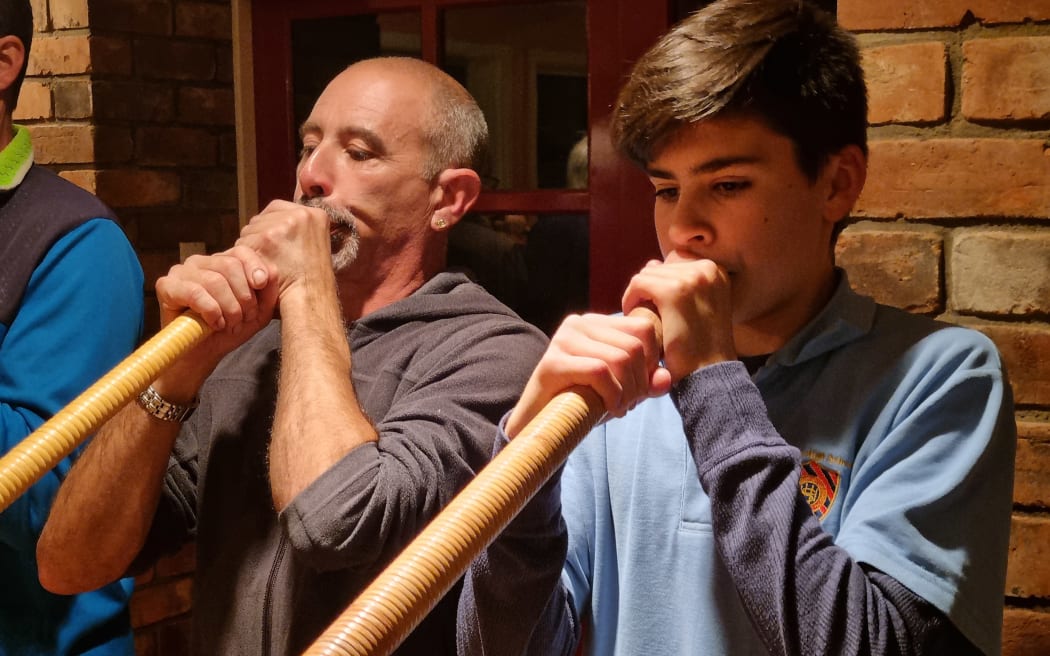
Aaron Boesch (left) plays the alphorn his father brought to New Zealand from Switzerland alongside Ryan Bühler (right), who at 15 is the youngest of the Taranaki Swiss Club’s alphorn players.
Photo: RNZ / Robin Martin
Beck said the size of the room, the temperature and atmospheric conditions could all affect how the horns, which were often played outdoors, sounded.
Hebler said since Beck’s approach the alphorn group had gone from strength to strength.
“I’ve been teaching him a bit and we carried on and one or two others cottoned onto it and were quite interested to come along too.
“Then we found another three or four instruments and here we are now with six players.”
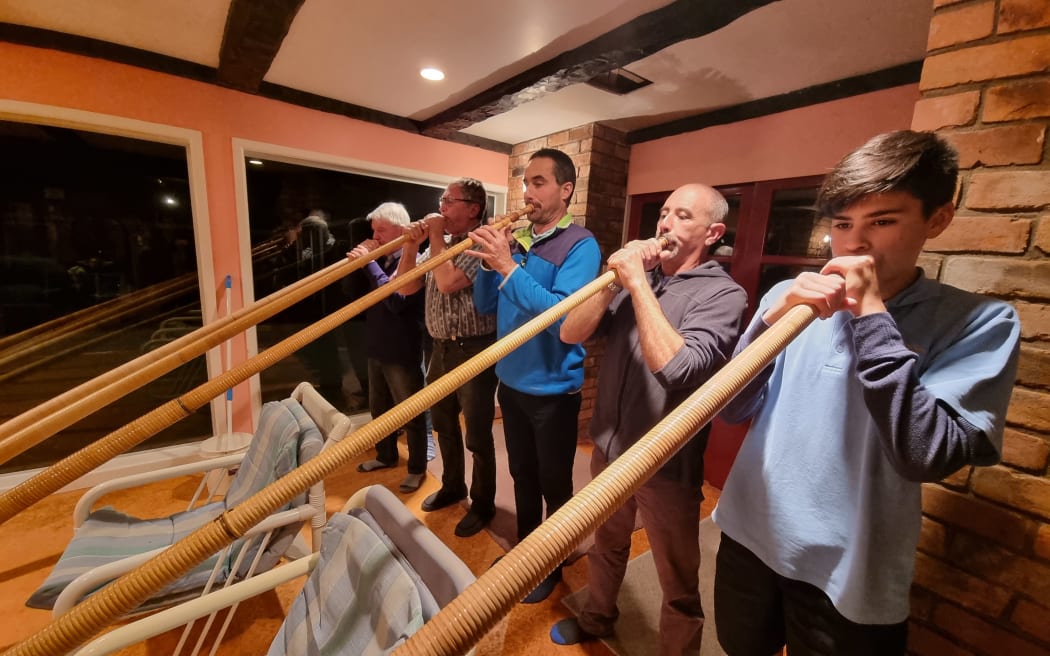
Interest in learning the traditional alpine instrument has grown among members of the Taranaki Swiss Club.
Photo: RNZ / Robin Martin
A dairy farmer, who arrived in New Zealand in the 1970s, Hebler said anyone could learn to play an alphorn.
“A Swiss alpine horn is made of mountain pine from way up in the mountains in Switzerland and it is all honed out and then it gets prepared and tuned. If you can blow a brass instrument you can easily blow a Swiss alpine horn.”
Hebler was also an accordion and brass player, but admitted to having a soft spot for the alpine horn which breaks down into three pieces for ease of transport.
“It’s a natural sound and it’s a piece of Switzerland, a piece of the mountains. Even in Austria and at the borders of Switzerland and Germany they have similar instruments and there’s no valves, no notes it’s just all natural tones that you create with your mouth.”
Gold miner Felix Hunger who left the West Coast to take up dairy farming in Taranaki in the 1870s is credited with the province’s long association with Switzerland.
In the early 20th Century more than half the Swiss living in New Zealand lived in Taranaki.
Hawera High School student Ryan Bühler is now part of that tradition.
He reconnected with his birthplace via the alpine horn.
“It’s just that I come from Switzerland and I’ve heard of it before and it always reminds me of Switzerland and going back there and it’s just a great thing to learn and if I was ever to go back I’d know how to play the alphorn.”
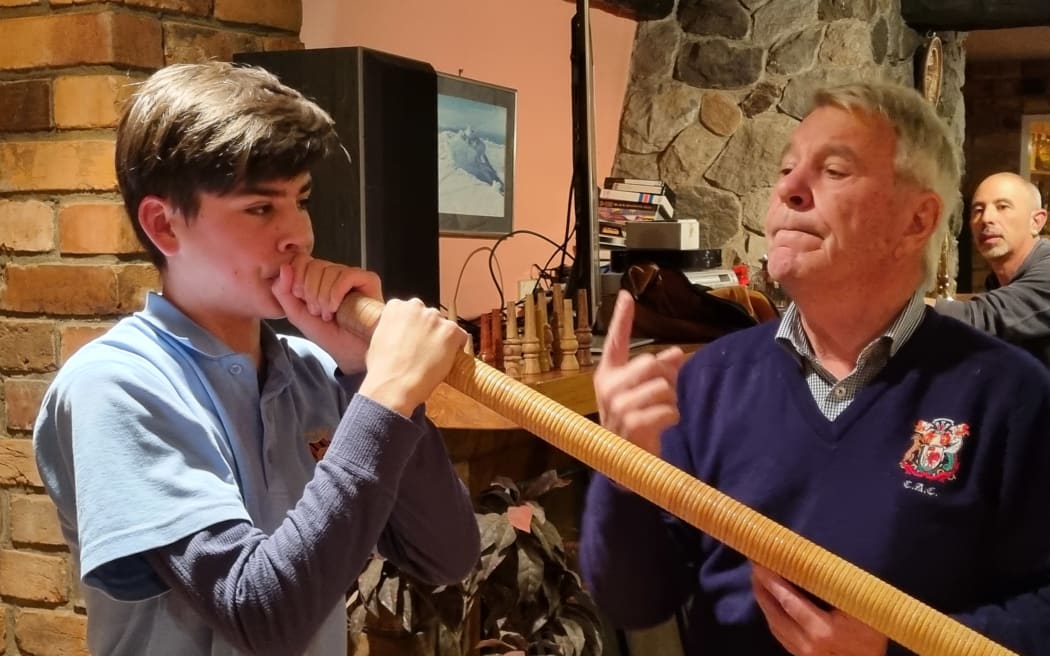
Ryan Bühler practises playing the alphorn.
Photo: RNZ / Robin Martin
Aaron Boesch is New Zealand-born and playing the alpine horn also had a special meaning for him.
“The alphorn I play is my dad’s; the one he brought when he came out from Switzerland. He brought a whole range of Swiss instruments with him and Swiss culture.
“So, some people inherit a house but I inherited an alphorn which is good and now I get an opportunity to play it. Before it sort of sat in the corner of a room and I got it out on the odd occasion but now I play it every week.”
Swiss alpine horn not your thing?
Well there’s always the accordion and piano or you could join Alan Beck and the Taranaki Swiss Club singers in a bit of yodelling ….
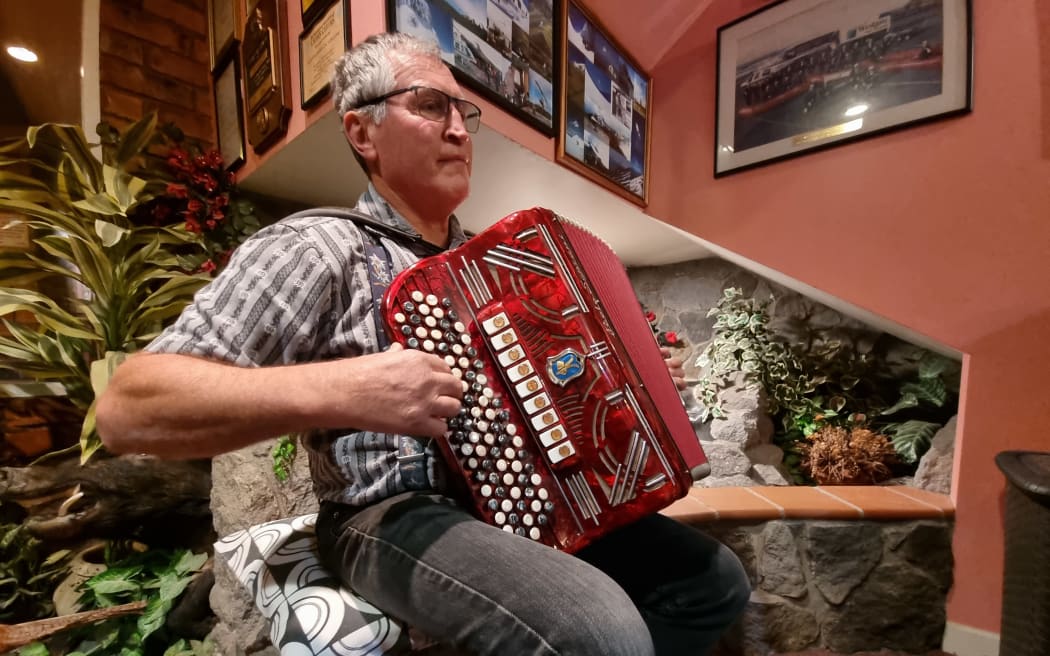
Othmar Hebler plays a piano accordian at the Taranaki Swiss Club.
Photo: RNZ / Robin Martin
The Taranaki alpine horn group meets every Wednesday evening in either Eltham or at the Taranaki Swiss Club hall in Kaponga.




















Discussion about this post